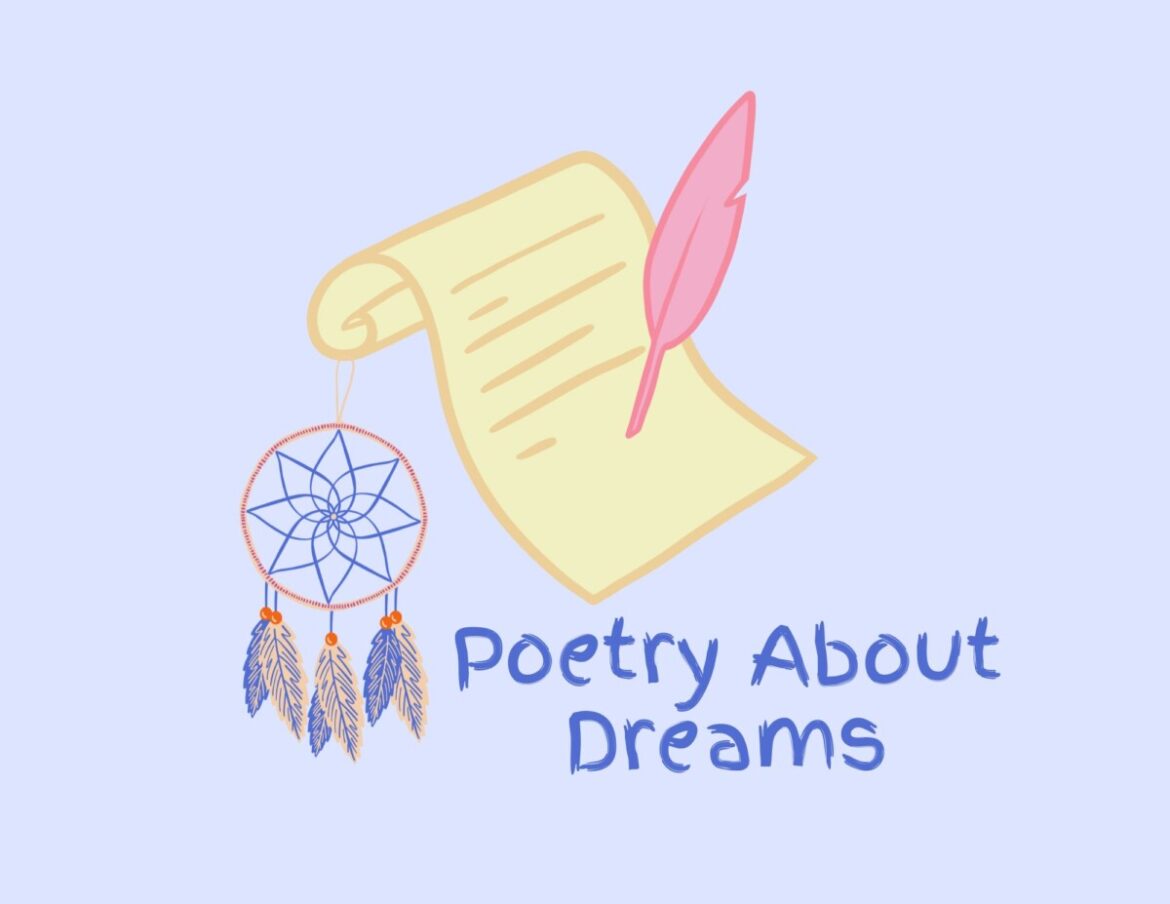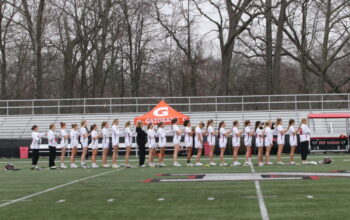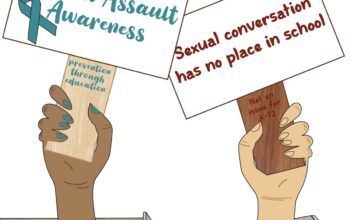Amy Meng, Arts & Tech Editor
@amengcourant
In my first and previous blog about my recent Kenyon Young Writer’s workshop, I introduced the theme of the workshop, incorporating surrealism into writing, and its dominant presence in 20th-century artwork. Surrealism is commonly associated with dreams and can be written about in poetry.
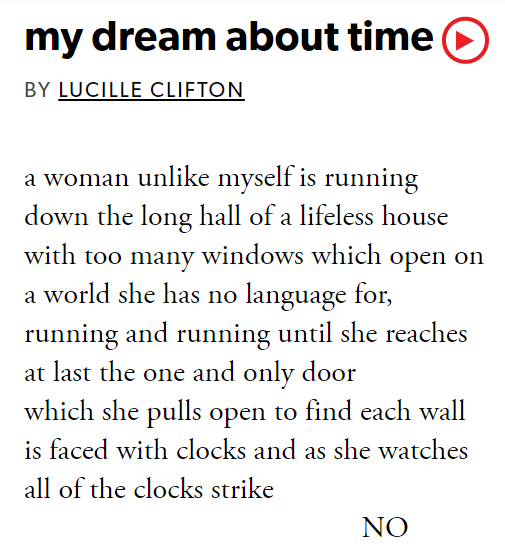
The first poem we read and discussed in the workshop was “my dream about time” by American poet Lucille Clifton. Although relatively short, the poem is powerful and carries a sense of urgency. Each stanza is carefully crafted, and leaves me trying to dig into their meanings. The person in this dream is “a woman unlike myself”. Is this woman Clifton in another universe, or an entirely different person? Additionally, what really stuck with me was the line “a world she has no language for”. As the narrator is running away from something, trying to find a way out, she is part of a world where she isn’t able to express herself. Not only is she physically trapped, but she is emotionally trapped as well.
And what does Clifton mean by the clock striking “NO”? Instead of striking a certain time, they seem to come together to tell her to stop, that perhaps all this trying to escape won’t benefit her at all. The ending of the poem gives off a sense of helplessness, as the clocks give the final call that the narrator will not escape from the house.
After reading and sharing thoughts on “my dream about time” , students were then introduced to the prompt above. We independently wrote for around ten minutes, then came back together to share new ideas and drafts. This prompt gave me a lot of freedom to write about whatever came into my mind, as long as it pertained to one of my dreams. What makes this prompt so unique is that there really is no ‘right’ world in a dream; I could write about a bizarre scene that wouldn’t be present in the real world, but rather a product of my imagination that still encourages deep thinking.
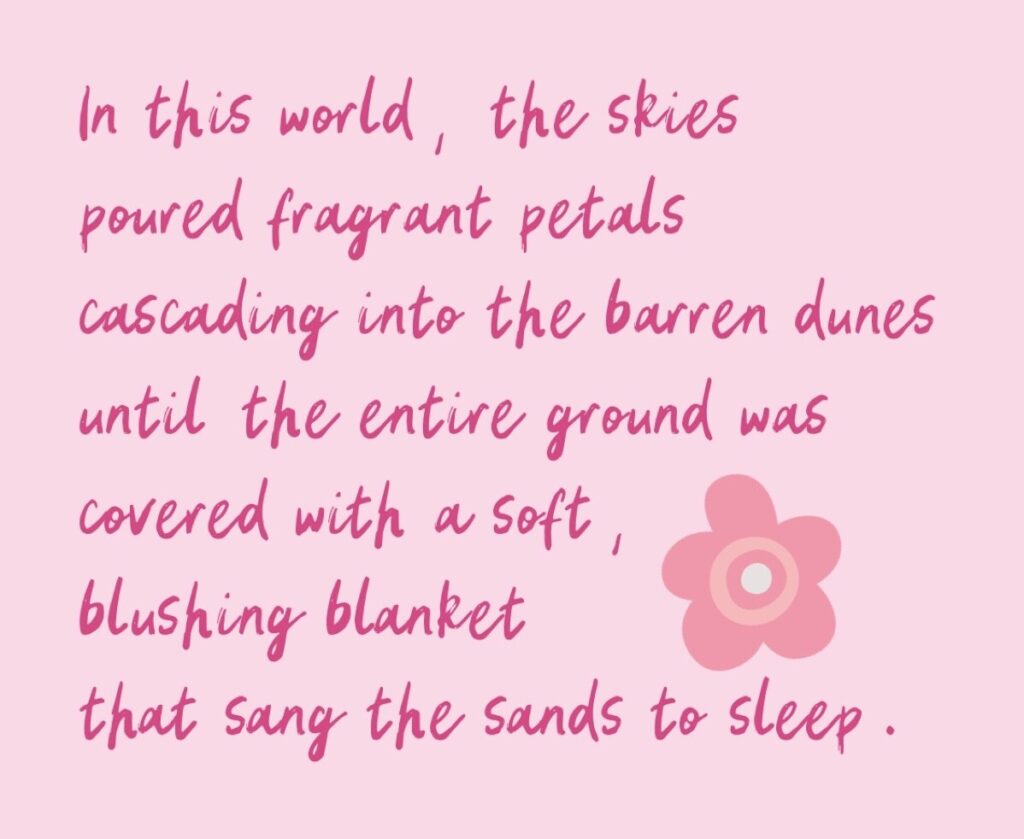
Dreams and the surreal can pervade in many forms, whether in sleep, imagination, or allowing these thoughts to flow freely in writing. We also explored creating worlds, changing elements of the real world and letting creativity take over. The surreal can represent so many things, and nothing can necessarily be wrong. Here is a snippet of a poem I wrote in the workshop:
In this world, everything is desert, dunes that seem to be endless. The sand gives off a dry and lonely feeling until the sky rains down petals one sees in early spring, coating the entire ground with a layer of pink that seems to tell the sand that it is not alone, that it can finally rest now with the knowledge that there is at least one other thing keeping it company. This scenes reflect one of the dreams I still remember vividly. Although it was difficult to put into words, the dream is an important reminder of the untouchable beauties in the world and the human ability to allow imagination to blossom.
If there’s one takeaway from the workshop, it would be that a writer should never be afraid to write what they’re thinking. If a poem, a line, or even a phrase suddenly pops up in your mind, jot it down! Everything can be turned into a journey, a transformative journey for yourself and others to explore.

